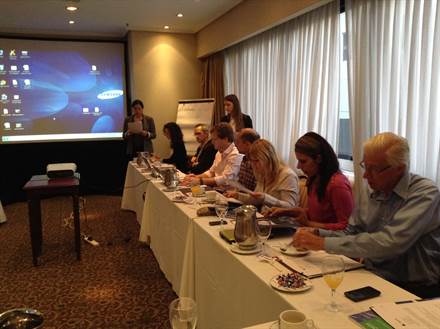
Wetland friendly breakfast in Argentina
“The natural flow of water in the Parana Delta is altering,” tells a local farmer. “We know this is caused by the increasing amount of infrastructure for the conversion of the Parana Delta wetlands into soy plantations. There is evidence that as a result, communities are no longer protected during the regular floods that occur in the Delta.” He is eager to find solutions for this problem affecting the region as well as adjacent territories.
Many other wetlands in Argentina are also negatively affected by the large-scale soy production, which at current spans over 60% of the total cultivated area in the country. Wetland drainage, land reclamation and pollution through the use of chemicals are the largest problems. An emblematic case of wetland loss is the Saladillo wetlands in Córdoba province, where almost the 70% of the lagoons have been lost by drainage.While the Roundtable for Responsible Soy already sets some standards to halt conversion of areas with high conservation value and promote best management practices, I came to the conclusion that for effective and large scale implementation of better wetland management in the sector, we need constructive dialogue on this issue.
We also need realistic proposals, which I believe can only be achieved with input from the variety of stakeholders in the sector. Wetlands International Argentina therefore hosted a first breakfast session in August to open the dialogue and collect and exchange ideas to address the matter in the sector.
The majority of the attendants agreed on the imperative need to revise the actual system of retentions tax on soy exports and to create incentives for good practices and discourage bad ones. A participant stated: “It would be important to generate mechanisms that reward certified producers with tax benefits, whether RTRS standard or any other accessible for medium and small producers.”
Participants also pointed out that one of the main factors that threaten responsible management of soybean cultivation is the current “soy production model” – which doesn´t integrate any ecosystem considerations and approaches. Furthermore, there is no state policy considering the socio-environmental impacts of soybean monoculture, in a country where agriculture is one of the pillars of economy and soy production accounts for almost the 30% of the export.
It was raised that one important factor that has led to this situation could be the lack of knowledge and a need for building capacities in the sector. “There are no inter-sectorial channels of communication that facilitate the access to scientific and technical information as a baseline for decision making and to raise awareness on how to include the conservation and better management of wetlands in the agenda”, said one of the productive sector representatives.
Although the lack of a state policy threatens the conservation of high value ecosystems, the group also agreed that there are existing opportunities that would allow building a path towards more responsible soybean cultivation. “Argentina has proven capability in improving soybean productivity. There is no reason why the scientific and technical groups cannot also develop state-of-the-art technology associated with more responsible agricultural practices”, explained a representative of one of the more important soy groups of the country.
And thus everybody agreed it is of primary importance to generate inter-sectorial working spaces to integrate the existent knowledge and enhance more sustainable practices, so there is no necessity to reinvent the wheel. Dialogues such as this breakfast session are a good start for this and we therefore want this meeting to be the starting point for a continued process of dialogue and consensus building, which should also include the public sector and more civil society.
Wetlands International is also promoting a Minimum Standards law for wetlands conservation in Argentina (already presented to the Congress), which I believe is an important first step towards conserving the goods and services that wetlands provide.To respond to the demand for better knowledge, Wetlands International and its partners work to establish a knowledge base called the Socio-economic Observatory of Soy. The objective is to develop solid information regarding the impacts of soybean cultivation expansion on wetland ecosystems, water and local livelihoods and reach key decision makers, such as those that enjoyed this breakfast with us.
If you are interested to participate in this next environmentally friendly breakfast meeting, I invite you to contact Carmen Penedo, Wetlands International Argentina at [email protected] and we will keep you posted on the next session.
